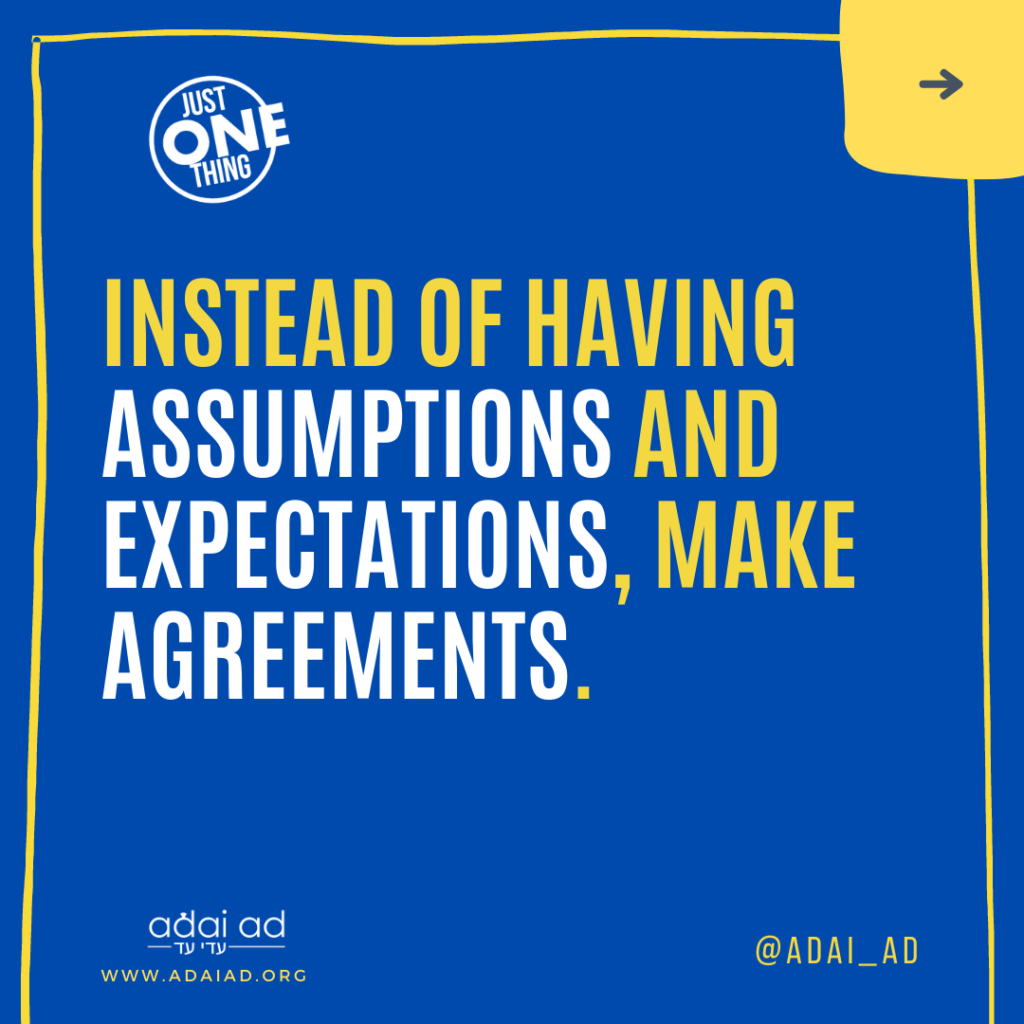An assumption is something that is accepted as true or as certain to happen, without proof. We assume somebody will do something. We assume that the activity will be accomplished. But there’s no proof that it will happen.
An expectation is a hope or belief that something will happen. We hope or believe that something will happen in a specific way.
These sound like: “You should know what I want.” “It’s common sense to know that.” “That’s just what is expected for that role.”
Assumptions and expectations both live in “ME”, the other person doesn’t know what you are assuming or expecting – even if it is ‘rather obvious’. Assumptions and expectations are often unspoken and not shared with the other person. Or if they are shared, the other person did not necessarily agree. This can lead to frustration if these don’t actually happen.
—
Instead, move to agreements and commitments with others. These are mutual arrangements accepted by all parties. These live in “US”. All know and agree on the details. When all parties are mutually engaged in coming up with the agreement, all are more likely to accomplish it. As you come up with the agreement, you are working out what you can count on each other for.
During a relaxed time (not in the heat of an unmet expectation), seek agreement: “This is what I would like (and why)… Let’s talk so we come up with an agreement that works for both of us.” Creating those agreements can take awareness, vulnerability, empathy, and flexibility.
“Can we have an agreement about privacy in our relationship?” “Can we have an agreement about who does what during dinner time?”


